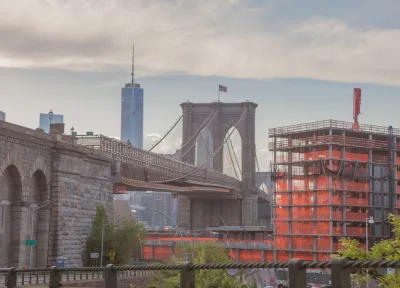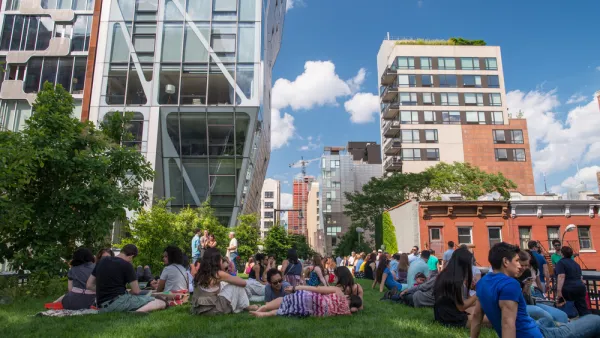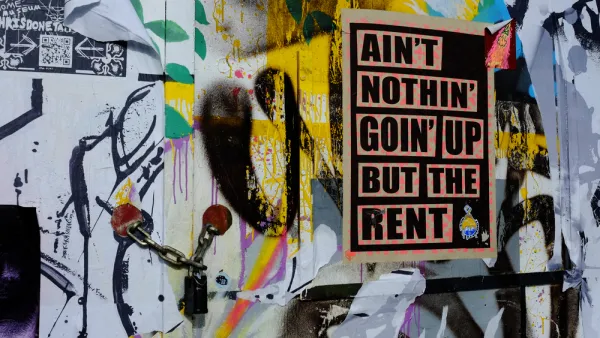Call it the re-education, the evolution, or the contrition of Richard Florida, but the "rock-star urbanist" has realized some unintended consequences of his creative class ethos, and he's ready to share a new vision for cities.

Lydia DePillis reports on the evolution of Richard Florida, who 16 years after his first book, The Rise of the Creative Class, will release a new book called The New Urban Crisis.
According to DePillis, the theories included in The Rise of the Creative Class "proved half true." That is, "[f]or many small, post-industrial cities without assets like big tech companies and universities, no amount of creative-class marketing would turn things around."
Meanwhile, "some cities — San Francisco and New York, Austin and Seattle and Washington — have seen the theory work entirely too well, as creative and techy types revitalized downtown neighborhoods to the point where only bankers and software developers can afford to live in them comfortably."
DePillis attended a recent event in Houston hosted by the Kinder Institute and the Greater Houston Community Foundation, where Florida admitted that his original work did not anticipate the "dark side of the urban creative revolution."
The new book won't be out until next spring, but Florida spoke with DePillis in detail about its genesis (an argument with Joel Kotkin) and some of the realizations that shaped its argument (e.g., the segregation and sorting of growing cities). The new book, explains DePillis, is about "inclusive urbanism": "investing in residents' skills rather than yuppifying their neighborhoods, about retrofitting suburbs for people who might want to be able to walk to a grocery store and piping them into the city with commuter rail."
One pointed moment comes when Florida responds to the politics of the "tribe of urban libertarians," which is probably a code for YIMBYs. Here's Florida in his own words on that subject:
What happened to the urban left is it got captured by critical studies, the people who run around in geography departments and who've just given up reality. These are the people who think you're going to rebuild cities by deregulating land use. Welcome to Houston!
FULL STORY: The re-education of Richard Florida

Analysis: Cybertruck Fatality Rate Far Exceeds That of Ford Pinto
The Tesla Cybertruck was recalled seven times last year.

National Parks Layoffs Will Cause Communities to Lose Billions
Thousands of essential park workers were laid off this week, just before the busy spring break season.

Retro-silient?: America’s First “Eco-burb,” The Woodlands Turns 50
A master-planned community north of Houston offers lessons on green infrastructure and resilient design, but falls short of its founder’s lofty affordability and walkability goals.

Test News Post 1
This is a summary

Analysis: Cybertruck Fatality Rate Far Exceeds That of Ford Pinto
The Tesla Cybertruck was recalled seven times last year.

Test News Headline 46
Test for the image on the front page.
Urban Design for Planners 1: Software Tools
This six-course series explores essential urban design concepts using open source software and equips planners with the tools they need to participate fully in the urban design process.
Planning for Universal Design
Learn the tools for implementing Universal Design in planning regulations.
EMC Planning Group, Inc.
Planetizen
Planetizen
Mpact (formerly Rail~Volution)
Great Falls Development Authority, Inc.
HUDs Office of Policy Development and Research
NYU Wagner Graduate School of Public Service



























